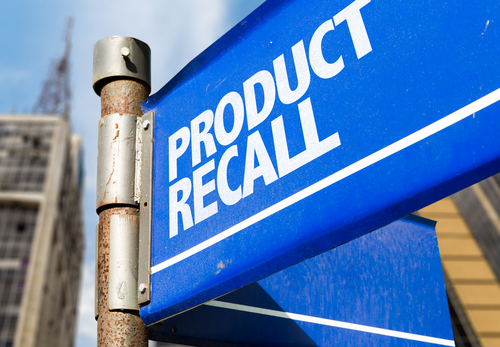Tort laws provide the backbone for civil actions that seek to relieve people who have been injured or harmed by another party. These laws hold the at-fault party liable for damages resulting from the injury they caused, and they aim to discourage other parties from behaving in ways that can similarly harm other people.
Product liability tort is a form of law that takes these principles and applies them to the manufacturers, distributors, and retailers of products that cause injury to a person by a defect of design, manufacture, or marketing.
Elements of a Product Liability Claim
Product liability tort specifies five criteria to establish liability. These required elements include the following:
- The plaintiff used a product that the defendant sells
- The defendant sells the product as a function of a commercial business
- The plaintiff sustained an injury
- The product was defective when the defendant sold it
- The product caused the plaintiff’s injury
This tort covers both tangible products and intangible products, like gas.
Types of Defects That Can Promote Liability
The central component of product liability tort is the concept of “defect.” If the product’s defect caused the plaintiff’s injury, the party responsible for the defect may be liable.
A product’s defect can manifest in any of three ways.
Design Defects
This type of defect originates in the design process before the product is even created. The defect has nothing to do with functionality and everything to do with safety. In New York, plaintiffs bear the burden of proof when claiming that a design defect caused their injury.
Manufacturing Defects
When a product comes out of the manufacturing process with a flaw not intended by design, but rather a result of faulty manufacturing, the product is said to have a manufacturing defect. Because the design of the product is not flawed, only a portion of the products manufactured may suffer from the manufacturing defect.
Marketing Defects
Sometimes, product manufacturers fail to warn consumers of the dangers and risks associated with using their products or fail to include instructions for proper use of the products. These may be considered marketing defects.
Strict Liability
Product liability tort stems from tort laws, which aim to provide remedies to individuals who suffer an injury caused by another party. Some of these laws require the plaintiff in a claim to prove that the defendant’s actions that caused the injury were either negligent or willful. Such is not the case with product liability tort.
Product liability generally falls under a legal concept of strict liability, meaning that the defendant is liable for damages from the just by the product causing an injury. The plaintiff in this type of civil action may need not prove that manufacturers, distributors, or sellers of the product negligently or intentionally created the defect—only that the defect exists and that it caused an injury.
Types of Products in Product Liability Cases
The U.S. Department of Justice provides information on current and recent product liability cases, of which there are many. Common product types in product liability cases include:
- Auto parts
- Drugs
- Medical devices
- Construction supplies
- Electronics
- Home appliances
- Toys and other children’s products
- Fireworks
- Pesticides
- And more
Recoverable Damages in a Product Liability Case
The financial outcome of each product liability case varies widely from one case to the next. Plaintiffs may hire a product liability tort lawyer to gather and review the damages stemming from a defective product, then present them in a demand letter to the defendant’s insurer.
Typical types of damages seen in these cases include:
- Medical expenses (past and future)
- Lost wages and benefits
- Pain and suffering
- Mental anguish
- Emotional stress
This list is far from comprehensive. A product liability lawyer should understand the full range of the types of damages their client can claim in their specific case.
If a person dies from injuries caused by a defective product, their loved ones may be entitled to pursue a wrongful death action. A different set of damages may be available in a wrongful death lawsuit.
Gacovino, Lake & Associates, P.C. Understands Product Liability Tort
Product liability tort is not something if you need to navigate on your own. If you or a loved one suffered an injury due to a defect in a product’s design, manufacturing, or marketing, Gacovino, Lake & Associates, P.C. may be able to manage your case and pursue compensation on your behalf.
Do not delay if you are considering legal action, as New York imposes a general three-year statute of limitations on product liability lawsuits, per CVP §214.
For a free review of your case, call Gacovino, Lake & Associates, P.C. at (631) 600-0000 today.
